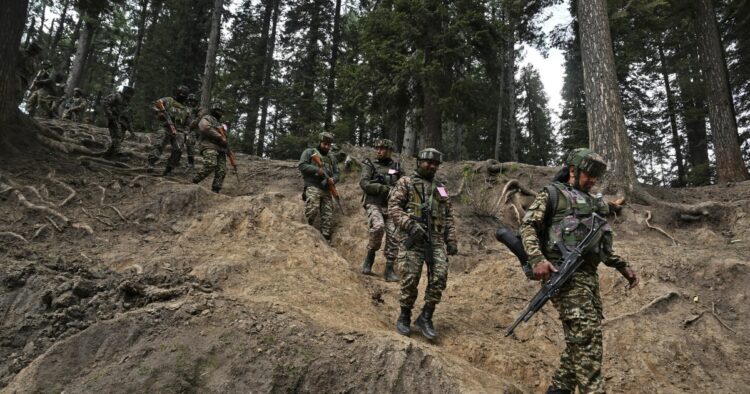KEY POINTS
- 26 civilians killed in Pahalgam terror attack
- NYT slammed for calling terrorists "militants"
- US backs India, calls it a terror attack
On April 22, a peaceful day turned into horror in Pahalgam, Jammu and Kashmir, when armed terrorists opened fire on innocent tourists in the Baisaran Valley. This brutal attack left 26 civilians dead, including women and children, and many others injured. The victims were unarmed and had come to enjoy the beauty of the mountains. Instead, they became targets in one of the worst civilian attacks in Kashmir in recent years.
Eyewitnesses described a terrifying scene where people were running for their lives, children were screaming, and the valley echoed with gunshots. The attack site was an isolated area with little security, which made it easier for the terrorists to carry out the massacre without any immediate resistance.
Who Were the Attackers?
The police have identified the three terrorists as Adil Hussain Thoker, Hashim Musa alias Suleiman, and Ali Bhai alias Talha Bhai. They are believed to be part of the Resistance Front (TRF), which is a known proxy group of Lashkar-e-Taiba (LeT), a banned terrorist group based in Pakistan. According to security officials, the attack was planned from across the border in Pakistan-occupied Kashmir (PoK).
The timing of the attack was not a coincidence. It happened just before the start of the tourist season and upcoming elections, suggesting a clear intention to disturb peace and create fear among the public.
Strong Reaction from India
Prime Minister Narendra Modi, speaking from Bihar, gave a powerful and emotional message. He said, “India will identify, track, and punish every terrorist and their backers. We will not stop until justice is done.” His words reflected the anger and determination of a nation that has suffered many such attacks over the years.
On April 24, the Central Government called an all-party meeting to discuss the situation. Union Minister Kiren Rijiju stated that all political parties, regardless of their ideology, stand united against terrorism. This showed that the entire country is together in this fight.
To speed up the investigation, the Anantnag police have announced a reward of ₹20 lakh for any information that helps in catching the attackers. Security agencies are working day and night, following leads and intercepts. They believe the attackers were in contact with handlers based in Pakistan, and there is a massive search operation going on in southern Kashmir.
Global Condemnation and Media Controversy
While India mourned its loss, the attack triggered a serious debate across the world, especially in the United States. The New York Times (NYT), one of the most well-known newspapers globally, published a headline calling the attackers “militants” and “gunmen.” This caused a huge uproar.
Many in the US government sharply criticized the NYT for using such soft words. The US House Foreign Affairs Committee posted the NYT headline on social media and edited it by replacing the word “militants” with “TERRORISTS” in bold red. They wrote, “Hey, @nytimes, we fixed it for you. This was a TERRORIST ATTACK, plain and simple.”
Even the White House joined the backlash, saying that media outlets must be careful with the language they use when reporting acts of terror. The message was clear: calling terrorists anything less than what they are—terrorists—dilutes the truth and misleads the world.
President Donald Trump personally called Prime Minister Modi to express his condolences and offered full support to India. US Vice President JD Vance also extended solidarity with India, saying that both nations stand together in the global fight against terrorism. This shows that the world is slowly recognizing that attacks in India are not just “regional issues,” but part of the broader global terror problem.
This attack was clearly aimed at creating fear, damaging tourism, and disturbing communal peace. But India’s response, from its government to its people, has been strong, united, and full of resolve. The country is sending a loud message: Terror may cause pain, but it will never break India’s spirit.
Now, the focus is on catching the attackers and their handlers. But equally important is the battle of narratives. When global media softens its language, it helps terrorists by hiding their evil behind vague words. India and its allies are now pushing back, demanding that the world call terrorism what it really is.

















Comments